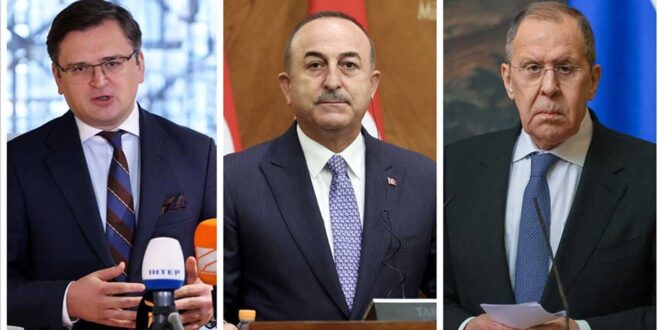With the Russian-Ukraine Conflict, various countries around the world have stepped in to try and mediate the situation, resolving the situation to a peaceful conclusion that results in less bloodshed. Ukraine has sued three times for peace, to no avail, while international and Russian companies have called upon the hostilities to cease while regular citizens and notable personalities, like Pope Francis, have also called for peace.
In spite of this international outcry from organizations and individuals of all political views, war continues to rage with civilians caught in the crossfire, solely being the victim of Russian shelling. However, multiple other countries have stood up and become mediators in their own right, working to try and prevent further destruction in addition to furthering their own geopolitical interests.
Russia
For the most part, it is hard to try and claim Russian is acting as a mediating force in this conflict. While they have agreed to meets with the Ukrainian government and Zelensky’s envoys, the Russian government’s own actions have betrayed these attempts at diplomacy.
Russia has, first, not discriminated against civilians and combatants in this conflict, targeting Ukrainian civilians and repeatedly bombing hospitals. Second, they have been waging an intense war on social media and elsewhere online, spreading intense misinformation on the Ukraine crisis and invigorating useful idiots around the United States and in the West. Already in Ukraine as well, there can be seen instances of increased brutality against Crimean Tatars by the Russian government alongside examples of crackdowns against Ukrainians who try and resist the Russian occupation of Ukrainian lands.
While Russia can try to claim in their own state (and select, pro-Putin/Russia circles) they are justified by their own laws or are historically valid in their reasoning, they, for all intents and purposes, are not. Their actions consistently portray a nation-state that will enter or head towards the negotiating table as a way of buying time or in order to provide the appearance they are actually trying for peace. While Russia’s actions and continual disregard for any norm in warfare or law is telling, Putin has multiple nation-states who would negotiate with him in mind.
Turkey
The Turkish government is a strong ally for Russia. According to the Washington Post, “is a fully fledged member of NATO” and buys both U.S. and Russian weaponry while also having a “struggling economy [which] doesn’t want any further disruption for the millions of Russians and Ukrainians who visit each year”.
Naturally, these are serious strategic economic and military concerns for Turkey and peace to them seems to be much needed to secure their own position.
However, while Turkey has in the past been great supporters or Russia, this has begun changing. This past week, Erdogan stated it remained unclear if Turkey would purchase more weaponry from Russia. There is a tentativeness with Turkey to support Russia, quite possibly out of fear of alienating the rest of the West and being lumped into the same category as Russia.
Given Russia has thus far rejected Turkey and Erdogan’s overtures at peace, with Ukraine agreeing to these talks, it is likely that this could possibly harm Turkey’s relations with Russia if Putin continues to reject such attempts.
Israel
Israel, meanwhile, has been caught in a very interesting position. While they often align themselves with the West and the United States, having a very long and thriving relationship with the nation across the Atlantic, Israel is seemingly engaging in these negotiations as there is no one else who can. Israel’s Prime Minister Naftali Bennett “decided to get involved when he realized almost no other country could speak credibly to both sides” according to Axios. This is notably different from Erdogan who has taken a more active role in the negotiations.
Bennett also has been “acting as a go-between” between Zelensky and Putin instead of trying to develop proposals or plans. This remains in line with Israel’s overall policy of trying to maintain their security, cultural, economic, and political considerations, with Russia being a key ally in the fight against Iran-backed targets in Syria and having a deeply personal, religious and cultural connection to Ukraine. For Israel, Russian action in Ukraine is certainly upsetting and deeply troubling, yet the nation also has their own geopolitical concerns to deal with.
Certainly, if things become more unstable with the Ukraine-Russia War, Israel would most likely side with Ukraine given they have a deep cultural affiliation and have more similar allies than Russia does.
Conclusion
Both Turkey and Israel must take care in trying to mediate between both Russia and Ukraine as neither desire to alienate themselves from the international community or from the West. Neither one agree with Russia’s actions in Ukraine, yet both of their positions of operating as a negotiation force are becoming more difficult to try and maintain; Israel faces pressure from Ukraine and the international community to join in on sanctions and condemn Russia for their attack on the Babyn Yar holocaust memorial while Turkey faces pressure from NATO to condemn Russia.
Both Israel and Turkey hold positions that are untenable in the long term if Russia continues along this violent path that defies international law, does not care to discriminate against innocent civilians and combatants, and engages in other war crimes. According to reporter Adam Taylor with the Washington Post, both Israel and Turkey “have had their own differences with Russia, particularly in regard to Moscow’s support for Bashar al-Assad’s government in Syria’s civil war” while Turkey in particular has also been supplying Ukraine with military equipment like drones for use in the conflict.
This could mean that a break with Russia could come soon for either nation-state, provided the West (either in the form of EU/NATO nations or the United States) were to provide an ample amount of support, be this in the form of financial, military, or other kind of aid.
 Geostrategic Media Political Commentary, Analysis, Security, Defense
Geostrategic Media Political Commentary, Analysis, Security, Defense





